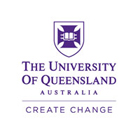- Berita & artikel
- Find usIDP AustraliaIDP BahrainIDP BangladeshIDP CambodiaIDP CanadaIDP ChinaIDP EgyptIDP GhanaIDP Hong KongIDP IndiaIDP IndonesiaIDP IranIDP JordanIDP KenyaIDP KoreaIDP KuwaitIDP LebanonIDP MalaysiaIDP MauritiusIDP Middle EastIDP NepalIDP New ZealandIDP NigeriaIDP OmanIDP PakistanIDP PhilippinesIDP Saudi ArabiaIDP SingaporeIDP Sri LankaIDP Taiwan, ChinaIDP ThailandIDP TurkeyIDP UAEIDP VietnamIDP Corporate
- Social
- Bahasa Indonesia
- Where we operate
- Courses
- Scholarships
- IELTS
- About IDP
- Student Essentials
- Berita & artikel
- Find us
- Find us
- Find nearest IDP offices
- IDP Australia
- IDP Bahrain
- IDP Bangladesh
- IDP Cambodia
- IDP Canada
- IDP China
- IDP Egypt
- IDP Ghana
- IDP Hong Kong
- IDP India
- IDP Indonesia
- IDP Iran
- IDP Jordan
- IDP Kenya
- IDP Korea
- IDP Kuwait
- IDP Lebanon
- IDP Malaysia
- IDP Mauritius
- IDP Middle East
- IDP Nepal
- IDP New Zealand
- IDP Nigeria
- IDP Oman
- IDP Pakistan
- IDP Philippines
- IDP Saudi Arabia
- IDP Singapore
- IDP Sri Lanka
- IDP Taiwan, China
- IDP Thailand
- IDP Turkey
- IDP UAE
- IDP Vietnam
- IDP Corporate
- Social
- Ubah Bahasa
- IDP Education /
- Kampus dan Universitas /
- Australia /
- The University Of Queensland /
- Bachelors of Journalism and...


Lokasi
Australia
Kualifikasi
Dual Degree
Biaya
AUD41120
(2025)
Durasi
4 Year(s)
Intake selanjutnya
20 February 2025
Skor masuk
6.5
IELTSCOURSE_INFO
The major in political science will give students a comprehensive understanding of competing visions of society and global complexity; power, authority and regulation; conflict and cooperation in democratic societies; and political identity. It will provide students with a comprehensive knowledge of ideas, ideologies, formal and informal institutions, political culture, participation and citizenship, representation and democracy. Graduates of this major will be able to practice democratic problem-solving, exercise capacity for independent thought and decision-making, skilfully analyse, demonstrate individual and collaborative written and oral communication skills, understand and engage with collective decision making, locate their own political identity and values, assess the plausibility of facts and arguments, identify core assumptions that animate political actions, and translate learning into policy, engagement and impact. Graduates of this major will be adaptive, able to view problems from multiple vantage points, critical thinkers, and active citizens who are confident in their capacity for political leadership.b
- Beasiswa Lihat semua jurusan
- Magang
Persyaratan masuk untuk The University Of Queensland
International Baccalaureate Diploma - 29
IELTS overall 6.5, reading 6, writing 6, speaking 6, listening 6. For other English Language Proficiency Tests and Scores approved for UQ
TOEFL IBT - Overall 87, listening 19, reading 19, writing 21 and speaking 19.
Batas Waktu Pendaftaran
Batas waktu pendaftaran tidak tersedia Hubungi konselor IDP untuk informasi lebih lengkap
Further information
If you aren't eligible for the above entry requirements, you might ant to explore pathway options at The University Of Queensland. If you want to find out more, speak to our counsellors.
Peringkat Dunia THE
77th / 1250
Peringkat Dunia THEApa yang siswa kami pikirkan
Kami belum menerima ulasan apa pun untuk institusi ini.
Direkomendasikan untuk Anda
- Sarjana
- Australia
- DEADLINE: 07 Jan 2025
- Tipe pendanaan: Fee waiver/discount
- Sarjana
- Australia
- Tipe pendanaan: Fee waiver/discount
- Sarjana
- Australia
- Tipe pendanaan: Other Discount
- Sarjana
- Australia
- Tipe pendanaan: Fee waiver/discount
- Sarjana
- Australia
- Tipe pendanaan: Fee waiver/discount
- Sarjana
- Australia
- DEADLINE: 31 Oct 2025
- Tipe pendanaan: Fee waiver/discount
- Sarjana
- Australia
- Tipe pendanaan: Fee waiver/discount
- Sarjana
- Australia
- Tipe pendanaan: Free products/services
Your action plan
Langkah 1
Shortlist your courses
Choose the best three courses you’re most likely to pursue.
Langkah 2
Check your eligibility
Get an instant in-principle offer for courses with the IDP FastLane tag.
Langkah 3
Apply through IDP Live
Fill out the form once and use it to apply to multiple courses.
Bagaimana cara kerja IDP FastLane?
Dengan 'Offer in Principle' dari FastLane, Anda akan mengetahui apakah Anda dapat diterima dalam hitungan menit!
Pilih institusi dan mata kuliah
Buat profil akademik Anda
Kirimkan permohonan Anda untuk 'Offer in Principle'
Institusi pilihan Anda akan mengirimkan keputusan dalam hitungan menit!
Bersiaplah untuk mendaftar dengan konselor ahli




